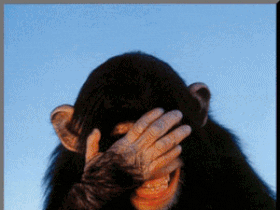The inclination of the mind
 Jeroen
Not all those who wander are lostNetherlands Veteran
Jeroen
Not all those who wander are lostNetherlands Veteran
I was reading a commentary by a Buddhist teacher on the issue of the Israeli-Palestine conflict, and I came across this Sutra which made me think...
Bhikkhus, whatever a bhikkhu frequently thinks and ponders upon, that will become the inclination of his mind. If he frequently thinks and ponders upon thoughts of sensual desire, … upon thoughts of ill will, … upon thoughts of cruelty, he has abandoned the thought of non-cruelty to cultivate the thought of cruelty, and then his mind inclines to thoughts of cruelty.
Dvedhavitakka Sutta MN19
It seems to be very much of how you choose to direct your thoughts. But to what extent do we choose what we think? The inclination of our thoughts may be carried by an initial fascination or desire, into a runaway cycle of increasing thoughts of violence or stealing, if you do not decide to motivate yourself against them.
Perhaps by reading or listening to the dharma we shape our inclination in favour of it.
The original article I was reading:
A buddhist response to the Israeli-Palestinian conflict
From it, this question in particular struck me as pregnant...
I have full faith in the Buddha, the Dhamma and the Sangha, but is cultivating The Noble Path sufficient in view of the frightening and painful disintegration of Israeli society and its deterioration into a fascist and repressive one, that is happening before my eyes? I made the long journey from Israel to hear from you, good Dhamma friends: what is your answer to this question?




Comments
I love this Sutta I don't think it's a matter of choosing what to think per say but more of an awareness or right mindfulness regarding those thoughts and then choosing which kind of thoughts are inappropriate to give our attention to. Siddhartha himself indicated that he really didn't control what kinds of thoughts arise.
I don't think it's a matter of choosing what to think per say but more of an awareness or right mindfulness regarding those thoughts and then choosing which kind of thoughts are inappropriate to give our attention to. Siddhartha himself indicated that he really didn't control what kinds of thoughts arise.
He probably didn't choose that to be the case. It just happened. But then he was able to recognize that they were inappropriate to pursue.
There are other suttas, forget which right now, that describe how to handle them if they don't just subside.
The ability to direct one's attention away from inappropriate things and onto appropriate things is fundamental to the path.
Of course being able to actually do that requires some skill in maintaining right mindfulness, in order to know what is appropriate to begin with. And then some skill in concentration to be able to actually redirect the attention. Both of which are skills gained and improved by doing basic meditation practices.
MN 20 and MN 2 are two of them. The latter outlines seven instances of wise and unwise attention relative to different classes of “taints”.
Summary:
The author of the article described a foundational aspect of wise attention:
@Kerome
It seems to be a case of "We are what we think (when the mind becomes charmed by its own thoughts)....But we are not our thoughts(when awareness unlocks and removes the fetters)!"
Which reminds me of the "Twin Verses" Dhammapada
" All that we experience begins with thought. Our words and deeds spring from thought. If we speak or act with evil thoughts, unpleasant circumstances and experiences inevitably result. Wherever we go, we create bad circumstances because we carry bad thoughts. This is very much like the wheel of a cart following the hoofs of the ox yoked to the cart. The cart-wheel, along with the heavy load of the cart, keeps following the draught oxen. The animal is bound to this heavy load and cannot leave it."
"All that man experiences springs out of his thoughts. If his thoughts are good, the words and the deeds will also be good. The result of good thoughts , words and deeds will be happiness. This happiness will never leave the person whose thoughts are good. Happiness will always follow him like his shadow that never leaves him"
Really? Does it? Sounds unbalanced to me ...
Our experiences, physical urges, emotional states often determines our thoughts. Our interpretation, our thinking/perception/disciplined mind can only partially overcome the intensity of life, unless cloistered, protected or repressed.
What have I misunderstood?
Good point. Does experience begin with a thought, or do you experiences trigger thoughts? To me, it seems like the latter.
Good point @lobster .......
Hmm... Maybe my mind is becoming charmed by its own thoughts again

I think something is getting lost in translation. I think mano in this context doesn't mean thoughts or even mind, per say, but heart, or mind in the sense of, say, a mind of loving-kindness. Such a mind/heart preceeds and colors all experience. Its color is its inclination. Speak or act with a heart embued with hate, unhappiness follows; embued with loving-kindness, happiness follows.